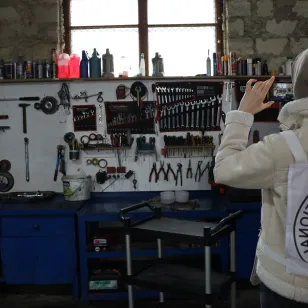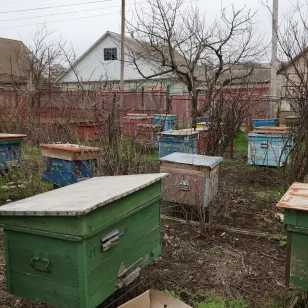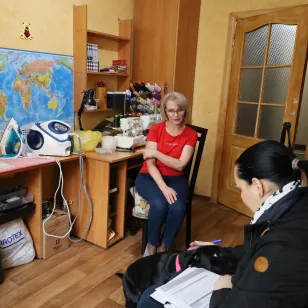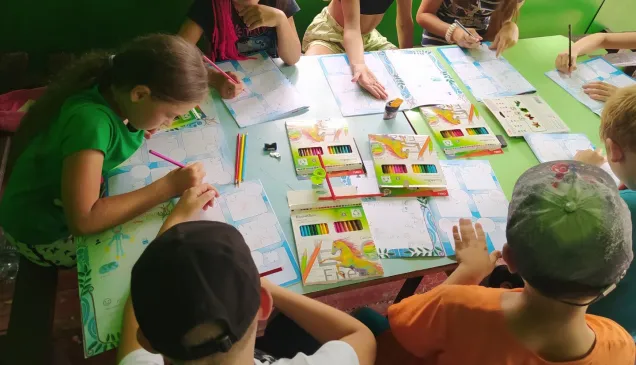Moldova: Rebuilding lives through the cash-for-livelihood programme

From her new home in a small village of just over 300 people in the Taraclia district in the south of Moldova, Galina has a new lease on life. “If it wasn’t your push, your capital, I probably wouldn’t have done all this so rapidly,” she says.
The delegation in Moldova launched its cash-for-livelihood programme in August 2023 to support economic recovery and build resilience of families and individuals like Galina who have been living in Moldova since early 2022 due to the onset of the Russia-Ukraine international armed conflict.
After looking for ways to earn money, Galina shared her idea for a new business with the ICRC. She wanted to start an information centre where it would be possible to hold conferences and provide various services such as designing publications, printing business cards, photo-copying, and lamination. Her new business is in the process of being launched.
On a recent trip, ICRC’s post-distribution monitoring team was greeted with the smell of fresh cheese as they reached the small village of Krasnaya Bessarabia, in the Transnistria Region. Like Galina, Oksana received a livelihood grant to start a cheese-making business. She buys the milk for her cheese from another ICRC beneficiary, Anatolii, who has a dairy business. This has created an eco-system of self-reliance and sustainability for people whose lives were recently thrown into disarray by the onset of the conflict.
Anatolii calls it a significant breakthrough and says they have “actually tripled their livestock…That’s three times more production and three times more profit!” He goes on to add, “I am engaged in milk production, and [Oksana] is already engaged in cheese-making. We are a kind of harmonious unit.”
In order to receive a grant, the ICRC conducts an assessment to hear from refugees and families who are hosting them about the kind of projects they would like to start, or pre-existing business they would like to grow.
In the Transnistria Region, 93 host families and 83 Ukrainian refugees benefitted from the cash-for-livelihood support program. Among the households that benefitted from the project, 110 out of the 176 were headed by women. For most of the beneficiaries, having an income-generating activity means it is “no longer an empty day.”
The range of projects the ICRC has supported include livestock breeding, agriculture, home contracting work, a tailoring shop, greenhouses, winemaking, bakeries, grocery stores, cleaning services, taxi companies, carpentry, and providing specialized services for the community.
Over 90% (163 out of 176 projects) of the projects have had a positive impact on their communities. What has made this program successful is that it relied on the people starting the project to determine the type of business and development opportunities. This has enabled its beneficiaries to become self-sufficient, meet their basic needs, and reduce their reliance on humanitarian aid.
Here are a few other people who have started new businesses with these grants:
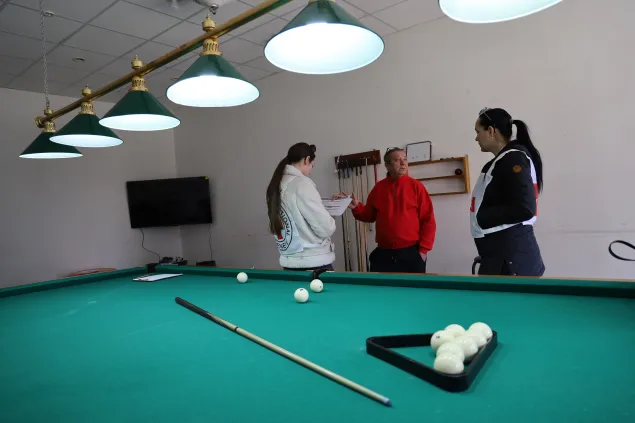
Menshikov opened a billiards café with his wife, who no longer has to travel abroad for an additional income for the family. Instead, she can help him with this “family business”, his sense of pride and accomplishment palpable. Menshikov’s business has begun to thrive and become a regular stop for people in the community. “I'm very happy that this billiard room has left a mark on their lives,” he says.
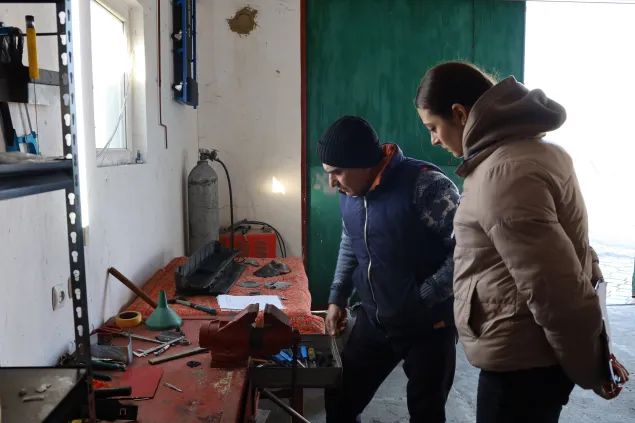
Ruscan, also a beneficiary of the project, has hosted 11 people who fled the hostilities. He runs a car service with over 20 years of experience in this industry. The cash assistance from the ICRC enabled him to buy good quality material and equipment, which resulted in an increase in productivity and sped up his work by 20 percent. He says, “The secret to success is self-discipline, responsibility, and patience. I’m happy, I’m grateful for your help.”
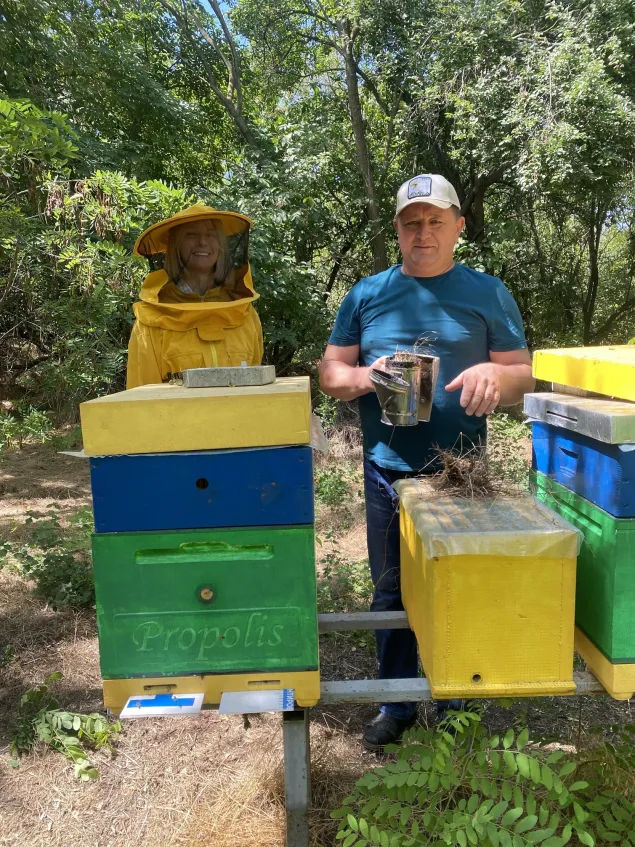
Serghei and his family have hosted people who fled Ukraine. He has been a beekeeper for a decade. The ICRC’s cash assistance helped him to expand his business by increasing the number of bee colonies, which in turn increased the production of honey. “After your investment,” he tells the ICRC, “You have given me such a boost that I am not afraid if there is no work. This business will bring me a slice of bread.”
Yurii is a construction contractor and expressed his gratitude for the financial support saying that he is “very grateful and [he] didn't even expect being away from home [he] would be able to start a project from scratch and develop it.” In the future, he wants to expand the range of services he provides.
Of the beneficiaries that received ICRC support through this program, 63% are women of varying ages, 29% are elderly, 14% included families with members who have disabilities or serious chronic diseases, and 2% were pregnant women. Additionally, 11% were individuals who, while not fitting other criteria, committed to employing refugees.
A strong partnership with the Bender branch of the Moldova Red Cross Society (MRCS) has allowed for consistent communication with beneficiaries throughout the program. The monitoring process involved volunteers from the Bender and Criuleni branches of the MRCS who were trained by the ICRC’s Economic Security team in 2023.



